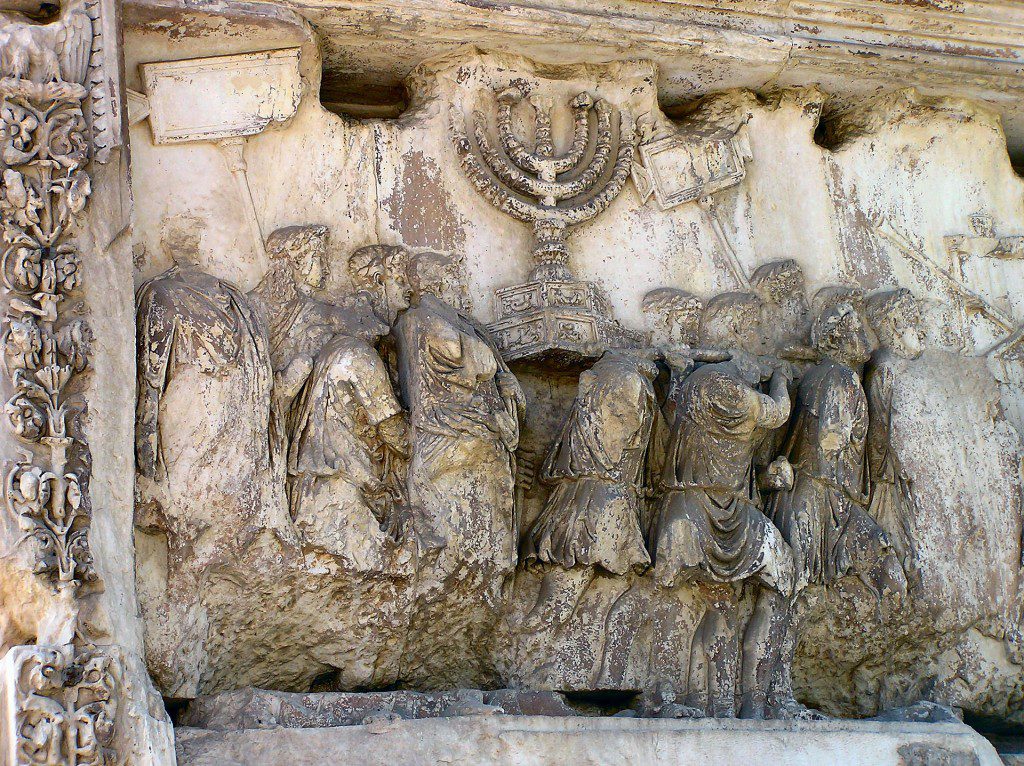
In ancient Rome, victorious generals were given a “triumph” or parade when they returned from battle. (You can watch a Hollywood recreation of one in the classic 1959 film Ben-Hur.) They would display the spoils they had looted and show off some of the more prominent captives they had seized (e.g., the captured Syrian queen Zenobia; Cleopatra committed suicide rather than be led in triumph by Augustus Caesar). However, as a defense against the haughtiness and sense of grandeur that might result from the adoration of the audience, a slave would be stationed behind the general. “Respice post te,” the slave would repeat. “Hominem te memento.” “Look past yourself [i.e., to the time after your death] and remember that you’re [only] a man.”
The common Latin expression for this sort of thing is Memento mori (“remember that you have to die”).
Memento mori may seem a bit morbid — literally so — in our youth-obsessed and death-denying culture, but I think it can be quite healthy.
I came across an article yesterday about a teacher and leader in Cache Valley who recently passed away. I wasn’t privileged to know him, but his wife is a Facebook friend.
“‘Passion and empathy’: Friends and colleagues remember beloved community leader”
What an admirable legacy to have left! How wonderful to be remembered in such a way!
I couldn’t help but think of the tributes recently paid (quite deservedly) to my friend Elder Bruce D. Porter and to BYU’s great football coach LaVell Edwards. Those tributes had relatively little to do with academic honors or prestigious publications or athletic titles. They focused much more on personal character.
Unfortunately, I also couldn’t help but think of the story of a prominent lawyer in an adjacent state — presumably at least a nominal member of the Church of Jesus Christ of Latter-day Saints, since he’s a graduate of the BYU Law School — who has been indicted and arrested on charges of having swindled as much as fifteen million dollars from his clients over the past few years.
I’m not pronouncing him guilty; he hasn’t been tried yet, and I know little more about the case than the headline. But, if the accusations are true, he wouldn’t be the first once good person lured astray by the siren call of quick wealth or infidelity or power or eminence.
One of the men I home-taught years ago spent a considerable portion of our visits lamenting his own fall from grace, which came at first by almost imperceptibly small increments and which culminated in criminal charges. He couldn’t believe, he told me, that he’d been so stupid and so weak as to, effectively, cast aside his genuine beliefs. But he had done just that. And my assignment to him came to an end when he was convicted and sent to the state penitentiary. (That’s not very good advertising, perhaps, for my skills as a home teacher.)
It doesn’t hurt, occasionally, to ask yourself what you would like to be remembered for, what you like to have (truthfully) said at your funeral, what your children and grandchildren and neighbors will remember about you.
They probably won’t lay a lot of stress on our awards or the gazillions that we earned or on the beautiful house and cars that we’re leaving behind. (Let’s hope that they aren’t obliged to downplay our misdeeds and betrayals.)
And the next question, plainly, is whether you’re doing the right things now, taking the right steps now, to be remembered as you would like to be remembered, to leave the mark that you most want to leave.
Edwin Q. Cannon had served as a bishop before he was my president in the Switzerland Zürich Mission — which, in those days, was responsible not only for German-speaking Switzerland but for Church units in North Africa, Greece, Israel, the Arab and Persian Middle East, and Afghanistan. (He had to visit those branches each quarter.) He told me, not terribly long before he was released, that he was looking forward to relaxing for a while on his ranch in Wyoming. But then his brother was called as a mission president, and he was obliged to reenter the family business. And then his wife, Janath Russell Cannon, was called into the General Relief Society presidency and he was called to serve in the International Mission presidency. And then they were called to open missionary work in Ghana and Nigeria. And then they were called to direct the Nauvoo Visitors Center. And then he was called as the interim president of the Germany Hamburg Mission while its president re-opened missionary work in East Germany. And then they were called to preside over the Frankfurt Germany Temple. And on and on. (I’m sure I’ve forgotten some assignments.)
They were bright — they had met while she was a student at Wellesley and he was earning an MBA at Harvard — but, more than that, they were faithful, devoted, and two of the kindest people I’ve ever known. In his final remarks in Zürich before he returned to the United States, President Cannon said that, if nothing else, he wanted the Swiss to remember that he had loved them. And, surely, that was one of the most obvious and noteworthy things about him. About them.
I stupidly recounted their story once in a setting where certain critics of the Church were vocal and active. Those critics pounced. The Church had shamefully exploited the Cannons, they said.
I saw it differently, and I know that the Cannons had seen it differently, as well. And I thought how much better it would be to have been loved and to be mourned by hundreds if not thousands of people in North America, Europe, Africa, and the Middle East than to die as a cynical, sneering nay-sayer.










